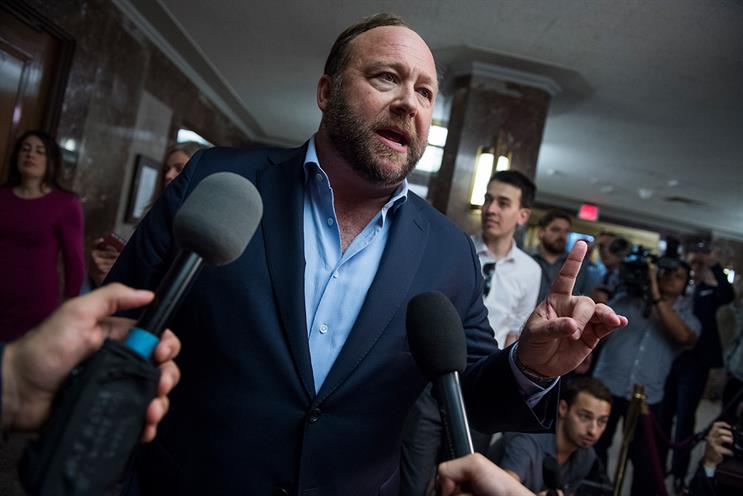News brands have never had a better sales story. We have evergreen qualities that advertisers cherish: an astonishing bond of trust with our readers, audience scale, brand-safe environments, quality, context, influence and attention.
It has not been enough, though; in the past 10 years, revenue to news brands has halved, while our collective audiences have risen. The media maxim that "the money follows the eyeballs" has not been met on this occasion.
This is happening at a time when you can make a good argument for news brands’ societal impact, because there is an encroaching dystopian vision for news.
This vision proposes that there is no longer a common truth to a news story, that facts aren’t established or agreed before opinions are formed, where the term "fake news" is thrown at anything one does not agree with.
Author Daniel Patrick Moynihan once said: "You are entitled to your own opinions, but not to your own facts." We worry that "alternative facts" are increasingly commonplace.
If there’s no common truth to a story, bad actors with an agenda can flourish. Alex Jones (pictured, above) is an American conspiracy theorist. He has said that the massacre of 28 people, including 20 kids, at Sandy Hook Elementary School in 2012 did not happen.
Conspiracy theorists used to be easily dismissed, but they now have huge audiences and real power. Jones runs a website and radio station called Infowars and has a large and loyal following. He’s not alone.
On Fox News in summer last year, right-wing commentator and bestselling author Ann Coulter said that the kids trapped in detention centres on the US/Mexican border were child actors. As evidence, she quoted an article from The New Yorker. After a lot of searching, it was found that she was referring to an article written in 2011.
The author of that piece, Suketa Mehta, said: "Either she lied or she's truly illiterate. I don't know if she knows how to read, but she clearly hasn't read my New Yorker article."
Too late; damage done. Fox News has confirmed the bias of its viewers.
With a new-found opportunity to spread their messages at scale, outspoken commentators on both extremes of the political debate are thriving. They quickly understood the internet’s usefulness in promoting their beliefs, knowing that they would rarely get past the editorial gatekeepers of mainstream media.
The internet has created what The Observer’s John Naughton calls "conspiracy entrepreneurs" – people making profit from outlandish claims. Jones makes money selling supplements and vitamins, and even has a loyalty scheme for his "Infowarriors" called "patriot points". He’s a skilled marketer as well as a loud voice.
Voices like his have impact. A major YouGov study was released in November 2018 with 11,500 people surveyed across nine countries. The research is disturbing, as summarised by The Guardian here:
"In the UK, people who supported were considerably more likely to give credence to conspiracy theories than those who opposed it, with 71% of leave voters believing at least one theory compared with 49% of remain voters. Almost half (47%) of leave voters believed the government had deliberately concealed the truth about how many, versus 14% of remain voters. A striking 31% of leave voters believed that Muslim immigration was part of a wider plot to make Muslims the majority in Britain. The comparable figure for remain voters was 6%."
This research should worry all of us who care about the division in our country. I’d argue that we should cherish responsible news brands more than ever, because someone has to keep score.
The Washington Post keeps a of "false and misleading claims" made by Donald Trump since he became president nearly two years ago.
On 30 December 2018, the count was at 7,645 misclaims in 710 days. His best daily performance is 139, when he was campaigning in the recent midterm elections. He is a one-man conspiracy theorist production company and has created the ideal conditions for loud voices to thrive.
Our world needs professional journalism more than ever, to hold power to account and to cast a spotlight on wrongdoing.
Let’s finish with an example from 2018 – Windrush, led by The Guardian’s Amelia Gentleman, a journalist who "dug beyond the numbers to find an astonishing story of human suffering and betrayal".
The Windrush scandal refers to long-term residents of the UK who came here to address labour shortages after the Second World War and who have since been denied public services and even threatened with deportation.
One victim of government policy is Vernon Vanriel. He lived in the UK from the age of six. After visiting in 2005, he was refused a visa when he tried to go back home to the country where he had been for 43 years. He then spent 13 years stuck in Jamaica.
Gentleman visited him in August and told his story. Two days later, a car from the British High Commission in Kingston drove 119 miles to his shack to give him the paperwork to allow him to go home. That’s the power of responsible journalism.
We know media agencies can’t just saunter up to their clients and recommend investment in news brands as some form of moral obligation. But they can now make that recommendation and back it up.
In the past year, we can demonstrate big audiences who pay attention (PAMCo), we can offer advertisers trust and context when they really need those qualities and, most importantly, we have substantial evidence of advertising effectiveness, much of it impartial – Thinkbox and Radiocentre have both shown the value of news brands. We can now make the case for continuing to support journalism with increased investment from advertisers.
Quality journalism is costly, time-consuming, truthful. It is vital to the way society works. It needs continuous funding. Brilliantly, it works for advertisers too.
Nick Hewat is commercial director of Guardian News & Media


